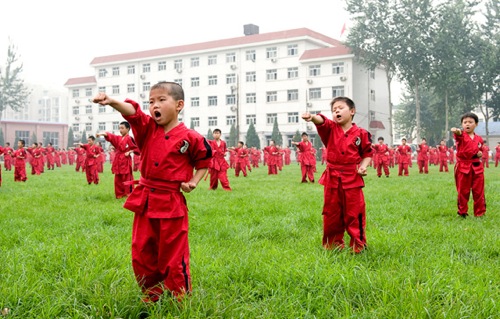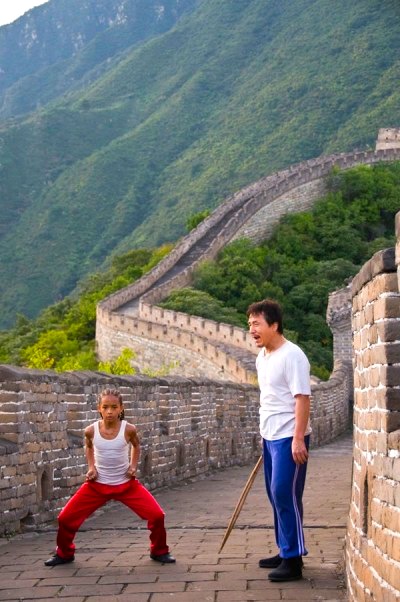
By Jason Apuzzo. Yesterday LFM was the first site (so far as we’re aware) to make a fuss over the fact that Sony agreed to let the Chinese government have some editorial oversight over the new Karate Kid remake.
I wrote about this issue in the context of the forthcoming Red Dawn remake from MGM, which certain Western critics are already deriding (see here and here) as being unduly harsh on the Chinese government.
Again, here’s the money quote from the LA Times article about the decision:
“If Sony made Karate Kid with a Chinese partner, it could be a part of that Asian gold rush, but the deal would come with some foreseeable obstacles, including possible government censorship.
[Doug Belgrad, president of Sony’s Columbia Pictures] didn’t think long before giving his answer. “That was enough to say yes,” says Belgrad.”
The LA Times article goes further and reports the following:
The “Karate Kid” decision not only launched the biggest modern movie co-production between an American studio and China, but also opened up the film to government-mandated creative controls that ultimately yielded two slightly different movies, as Chinese censors asked that several scenes, including sequences of bullying and a kiss between two young characters, be trimmed.
Now, based on my reading of the full LA Times article, my sense is that the changes required by the Chinese censors were relatively minor. Additionally, it’s not as if this is the first time American filmmakers have bowed to Chinese censors (some recent cases include Mission Impossible 3 and The Painted Veil).
With that said, what strikes me about this decision by Sony are two things:
- If the editorial demands from the Chinese were indeed minor, why give in to them – since the film otherwise seems to depict Chinese society so favorably?
- Why did a simple Karate Kid remake have to pass through the hands of Chinese government censors in the first place? Wasn’t there some other way to do this film?

I’m old enough to remember the original Karate Kid. It was a charming little movie (emphasis on ‘little’) about a kid in the Valley who gets beaten-up by bullies, learns karate, gets his self-esteem back, and defeats the bullies in open competition at a local karate tournament. That’s really it. Pat Morita and Martin Kove do nice turns in supporting roles, and Ralph Macchio gives a believable performance as a nerdy, awkward little Italian kid from Jersey who doesn’t fit in with all the blonde, buff California bullies. Basically the film works because Macchio comes across as a sweet, wounded high school outsider – and because he develops a great rapport with his mentor, the memorable (and quotable) Mr. Miyagi.
The point here is that the original film was not some giant co-production between America and China that required the editorial approval of Chinese censors. It was a small, somewhat quiet film that worked because of the effective characters.
Is it still possible for Hollywood to make such films? Apparently not. Apparently only indie filmmakers can do these things anymore – radical, dramatic things like having young people exchange a kiss on screen.
People should remember this minor little controversy when Red Dawn and Mao’s Last Dancer are released (one assumes) later this year. You are likely to hear a lot from critics about how the Chinese communists aren’t depicted ‘fairly’ on-screen. We’ll see. Just remember how the communists censored something as simple – and human – as a kiss.
Posted on June 10th, 2010 at 3:11pm.
I still think it’s absolutely ridiculous to call this movie “The Karate Kid” when there is no actual “Karate” in it. Am I the only one?
Very well put Jason – it’s the human that is censored by the Communists. How could they censor a kiss? It’s interesting – the same thing happened in “Sex and the City 2” – the Islamic men in it get angry at Samantha because she kissed a guy in public (at night, on a beach with no-one around) but that is what they fear the most – anything human. The Communists and the Islamic fundamentalists are the same in this.
I don’t understand why Sony had to bow to pressure on this. How craven are they?
Give it a break. If they don’t want to show a kiss on screen that’s their prerogative and simply different views on what’s appropriate and what’s not. I think a country like ours with rampant teenage pregnancies, violence against women, etc would know better than to criticize a country with a culture that has much less such problems.